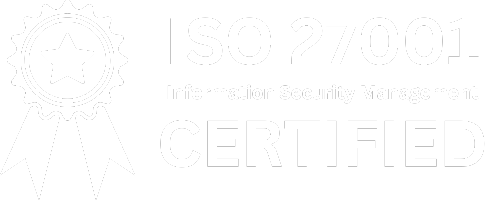Did you know an average website is being attacked 94 times in a day? Once the cybercriminals would equip themselves with more advanced technology, that number is expected to rise. Websites for small businesses (and small businesses in general) are the most vulnerable to cyber-attacks. Since SMB websites are often directly linked to the SMB’s network, where all sorts of goodies are processed, including confidential business and consumer data, small businesses become tempting targets.
When it comes to attempting to gain access to your network and records, cybercriminals and hackers can be violent. To gain access to your data, they use malware, ransomware, phishing scams, bot attacks, and even direct attacks. If you do not have safeguards in place to shield your company from such intrusions, you are putting your business at risk.
There are several “barriers” you can erect between your company and the bad guys, but there are four things you can (and should) do right now to get ahead of the game. This will ensure the protection of your business and data.
1. Create A Culture Of Awareness.
Education is a powerful tool, and this is particularly true in the field of cybersecurity. There are many steps you can take to create an awareness culture. That includes providing cybersecurity training to employees as well as continuing education to keep everyone in the company up to date on the current threats and the latest techniques to deal with them.
Your team’s training would help them detect risks and recognize when someone is attempting to step into your network (maybe through a phishing scam). In addition, since cyber threats are continually changing, continuous training will keep these threats at the forefront of your team’s minds, ensuring that your team is ready to combat whatever might be around the corner as threats evolve.
AlphaClick employees are continually educated/advised about cybersecurity, and to protect themselves from attacks, they use complex passwords, use firewalls, and upgrade programs and software as required
2. Monitor Threats 24/7.
This is where working with a seasoned IT services company will help. Returning to point #1, an IT services company will assist you in developing the culture of knowledge, but they can also keep two eyes on your network 24 hours a day, seven days a week. This way, if something or anyone tries to break into your network, they will be able to stop them before they become the real problem.
Threat monitoring also helps protect the team from more common attacks, including malware and ransomware. For example, when an employee clicks a suspicious link or downloads a malicious program by mistake, it can be isolated before allowing it to take hold and spread.
Since AlphaClick provides Managed IT Services, we make sure that we do not click on links unless we know what they are and whether they are recommended. We also do threat monitoring for our valuable customers.
3. Make Sure Protections Are Up-To-Date.
Almost all the hardware and software you use will need an upgrade at some stage. When you do not upgrade, you will be exposing yourself to serious risks. Hackers are still on the lookout for flaws in the software and devices you use. A good example is customer relationship management software. This program connects your business and customers and can store a wide range of data, from simple contact information to highly sensitive customer data.
Once a flaw is discovered, hackers will not waste time trying to exploit it. As a result, the CRM software’s creators should issue a security patch. When you do not upgrade (or have the update activated automatically), your risk increases dramatically.
Working with an IT services firm or a managed services company will once again assist you with this minor – but crucial – move. They will make sure that everything under your roof is up to date and that you have all essential and updated protections in place.
AlphaClick ensures that the software we are using are up to date and monitor our clients’ software and advise them to upgrade when necessary.
4. Have A Plan.
Every member of your team needs to be on the same page. After 60–90 days, they should all update their passwords. All of them must use secure and strong passwords. They should be able to recognize possible phishing scams. If the network or their computers go down for some reason, they must know who to contact. If your on-site data is compromised in any manner, whether it is due to ransomware, a natural disaster (flooding, fire, etc.) or hardware failure, you must know how to react.
In other words, you should have an IT handbook – a document that outlines every aspect of your IT protocol and cybersecurity strategies. This ties in with the previous three points: understanding, threat monitoring, and ensuring up-to-date hardware and software. When you have a plan in place, you know exactly what to do in case of specific threats. You have prepared yourself and are aware of the situation.
There will still be cyber-threats out there. Unfortunately, you cannot do much about that. However, there are steps you can take to protect yourself and your business from these risks. Put these four points into practice, collaborate with an IT services provider, and you will have an advantage over those who wants to avail the advantage.
AlphaClick has a plan in place for all and will take care of the problems when they arise. However, it is highly recommended that we use complicated passwords and update them on a regular basis.








